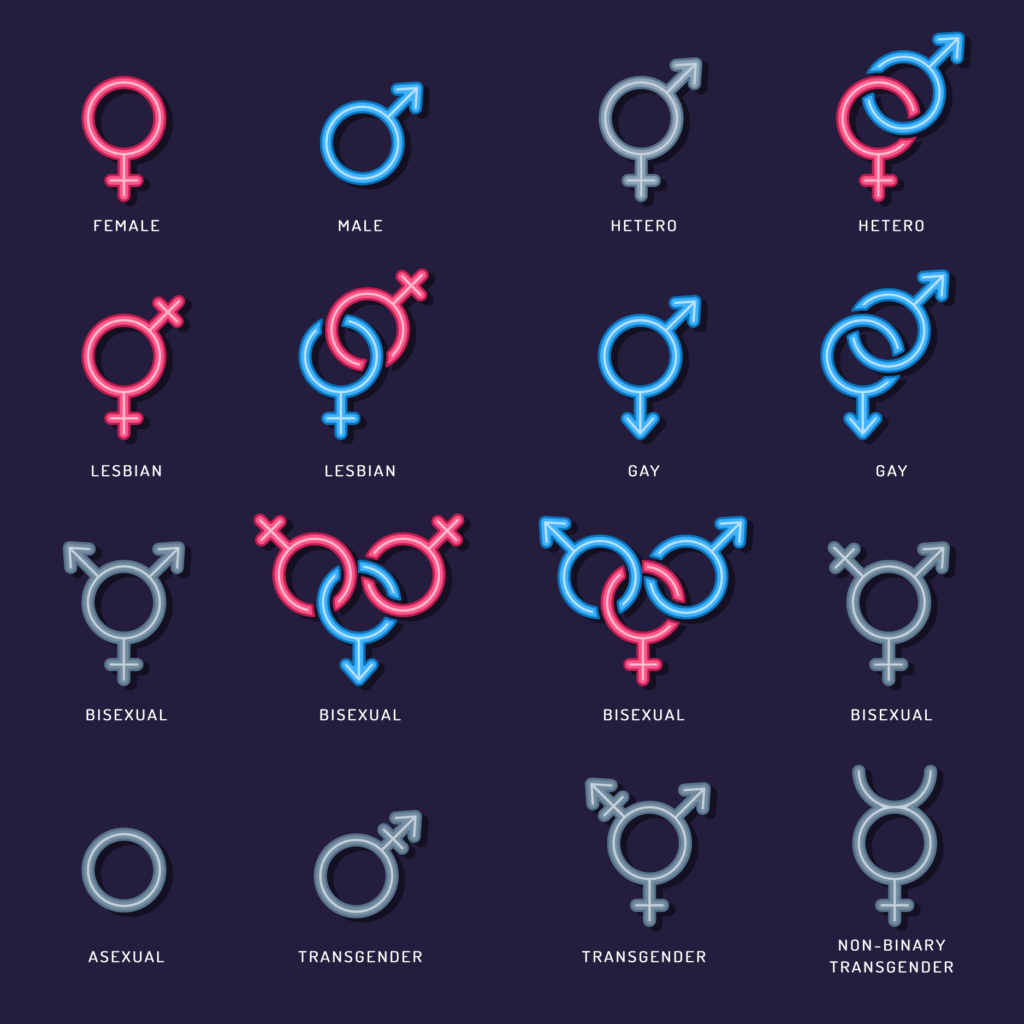
What you feel, who you love or which gender you are attracted to depends on your sexual orientation. For some, this can develop as early as childhood or as late as adulthood.
With the passage of time, some genders have changed their sexual orientation and inclinations. You have certainly been around for a long time, but nobody dared to say it or "come out". This loosened up over time. People became more open. Sometimes it was considered a statement to walk through the city hand in hand and present yourself in public. For many couples, it must have been a liberation to finally be able to show what they stood for and what they loved.
Unfortunately, many people, industries and religions are still affected by situations and actions that we find incomprehensible and despicable. It is unacceptable that so many people still live in fear, are not allowed to confess their orientation and are hated or even killed for their sexuality.
In our article, we would like to introduce you to some of these basic orientations:
Heterosexuality (heterosexuality)
Heterosexuality refers to people who feel attracted to the opposite sex. For a long time, this orientation was seen as the "normal" orientation because it is so common.
Bisexuality When a person feels emotionally or sexually attracted to the opposite sex, they are said to be bisexual. According to their own statements, many people have various experiences with the opposite sex in their lives. Young people in particular like to experiment. What has appealed to us over a long period of time does not necessarily have to stay that way. Just as our sense of taste and our preferences change, our sexual orientation can also develop.
Homosexuality In the development of modern society, there are significantly more homosexuals today than in the past. People who feel attracted to the same sex are called homosexuals. Unfortunately, many people still find it difficult to confess their homosexuality for reasons such as family, religion and general prejudice.
Pansexuality This term covers people who are attracted to all other sexes or can even fall in love. In addition to men and women, this also includes transgender people, intersexuals and hermaphrodites.
Asexuality Asexual people have no interest in sex, but this does not mean that they do not feel any arousal or needs. Many people want a relationship on a purely platonic basis where sexual activity does not take place. Asexuality does not mean sexual abstinence. Many asexuals have consensual sex in order to fulfil their desire to have children, for example.
Unfortunately, there are also such tendencies:
Paedophilia Paedophilia is the sexual interest in children who have not yet reached puberty. If this interest is translated into active behaviour, the person becomes a criminal offender as the legal norms are violated. If this interest lasts longer and the person concerned cannot control the urge to perform sexual acts with children, this is considered a mental disorder. Most of those affected realise that their addiction is a serious problem. If they do assault children, the risk of recurrence is unfortunately very high. With certain medications and therapies, this sex drive can be alleviated or even completely stopped in many of those affected.
